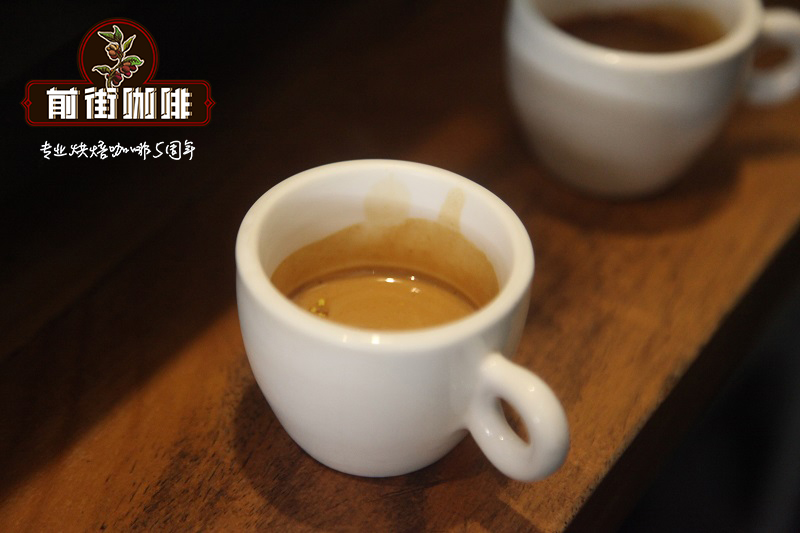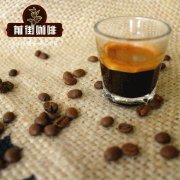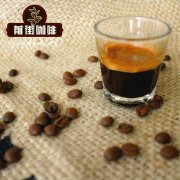Italian Coffee Culture differences Italian espresso drinking Italian Coffee Culture

Professional coffee knowledge exchange more coffee bean information please follow the coffee workshop (Wechat official account cafe_style)
The Espresso machine is believed to have been invented by the Italians in the 19th century, but its popularity probably began in the 1950s and spread around the world after the rise of Starbucks. In addition, Italian communities around the world have also helped spread Espresso coffee. It is worth mentioning that although the Espresso machine may be an Italian invention, some Italians think that the coffee brewed by the Espresso machine is unorthodox.
Italian coffee culture is not as casual as Starbucks might think; in fact, most Italians order a latte or American coffee to drink in a coffee shop only after breakfast. Italians drink coffee from an early age and are used to the concentration, bitterness and sour of the coffee concentrate. They often order an espresso in the coffee shop and drink it quickly. Italians believe that the concentrate will lose its best flavor in just a few seconds, so drink it quickly. Of course, many Italians will add sugar, casserole and so on to reconcile the bitter taste, which is more difficult for Chinese people to imagine.
For Italians, a latte with a lot of milk is not coffee, it's more like a drink. In addition, the original meaning of the word Latte is "milk", so in Italy the Latte waiter will bring a glass of milk instead of a latte, to say Coffee Latte.
A smooth latte or cappuccino is a common choice for countries outside Italy, but for Italians who drink more than five servings of espresso a day, coffee often means Espresso.
For Espresso, Qianjie Coffee thinks that if it can accept strong coffee, it is a good choice. After all, Espresso will enlarge the flavor of coffee, and you can taste the sour, sweet and bitter coffee more clearly in Espresso. The front street coffee is made of [Colombia] + [Brazil], the bright but soft acidity in the mouth is charming, the nutty flavor begins to emerge in the middle, and the caramel in the end is very long-lasting. If you like to drink milk coffee, this recipe is also a good choice. This kind of coffee is sour and sweet. The sweetness of this coffee is improved after adding milk, and the flavor of cookies when it is cold is also very surprising.
Espresso is an Italian word that means on the spur of the moment and "for you" (cooked right away for you).
Espresso was born in 1946, and Gaggia further improved the piston pressure system-using spring pressure instead of manual pressing-to float a golden layer of coffee fat on brewed coffee-Crema Klima, the first appearance of Crema Clema in coffee history, and this year became the official birth year of Espresso.
Gaggia officially established the coffee machine factory in 1948, and the mass-produced Gaggia coffee machine was sought after by the major cafes in Italy at that time, which accelerated the popularity of Espresso in Italy, Spain, Portugal and other southern European countries.
But it wasn't until around 1986 that Espresso was introduced around the world by Starbucks. Since then, people in the coffee industry around the world began to know and understand this kind of coffee. It was only about a decade earlier than the Chinese people came into contact with Espresso. So the more popular and reasonable way to name it is espresso.
"Espresso" is known as the "soul of coffee", but it should not be translated as "espresso" in Chinese, because in addition, there is a stronger coffee that needs to be used. For a coffee shop, a coffee shop that "does not sell" is not a coffee shop, which shows the importance of "Espresso".
Qianjie coffee: Guangzhou bakery, the store is small but a variety of beans, you can find a variety of unknown beans, but also provide online store services. Https://shop104210103.taobao.com
Important Notice :
前街咖啡 FrontStreet Coffee has moved to new addredd:
FrontStreet Coffee Address: 315,Donghua East Road,GuangZhou
Tel:020 38364473
- Prev

The characteristics of Italian Coffee Culture Italian Coffee how to drink espresso?
Professional coffee knowledge exchange more coffee bean information please follow the coffee workshop (Wechat official account cafe_style) Espresso Italian coffee, in recent years in China has been generally known by coffee lovers, this kind of thick and fragrant, floating with a layer of golden foam of pure black coffee, thick and hot like the devil escaped from hell, often asked people to drink will fall into nothing to say
- Next

How do you make espresso? how do you drink Italian coffee?
Professional coffee knowledge exchange more coffee bean information please follow the coffee workshop (Wechat official account cafe_style) A cup of high-quality coffee from seed to cup, often go through the selection of raw beans, roasting, and then the fine extraction of coffee
Related
- Beginners will see the "Coffee pull flower" guide!
- What is the difference between ice blog purified milk and ordinary milk coffee?
- Why is the Philippines the largest producer of crops in Liberia?
- For coffee extraction, should the fine powder be retained?
- How does extracted espresso fill pressed powder? How much strength does it take to press the powder?
- How to make jasmine cold extract coffee? Is the jasmine + latte good?
- Will this little toy really make the coffee taste better? How does Lily Drip affect coffee extraction?
- Will the action of slapping the filter cup also affect coffee extraction?
- What's the difference between powder-to-water ratio and powder-to-liquid ratio?
- What is the Ethiopian local species? What does it have to do with Heirloom native species?

